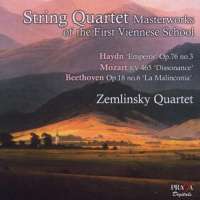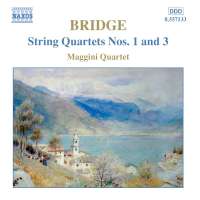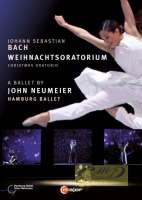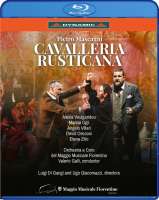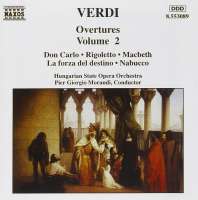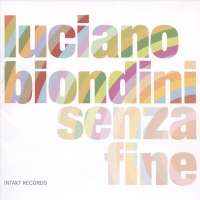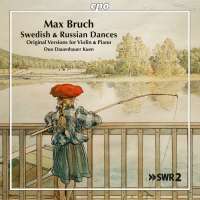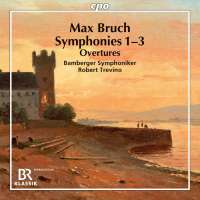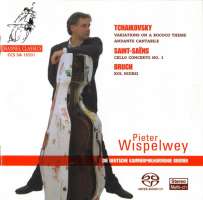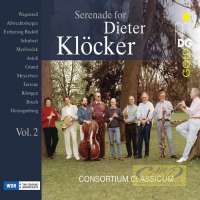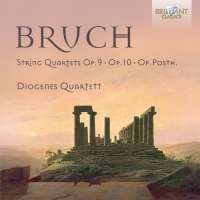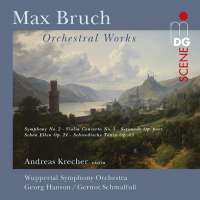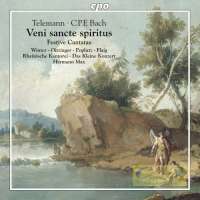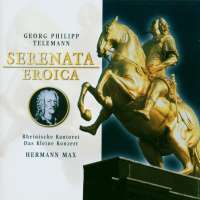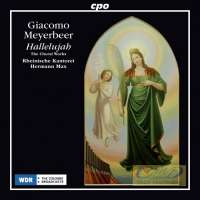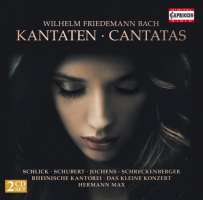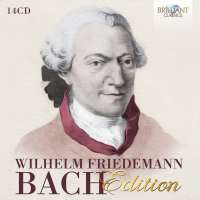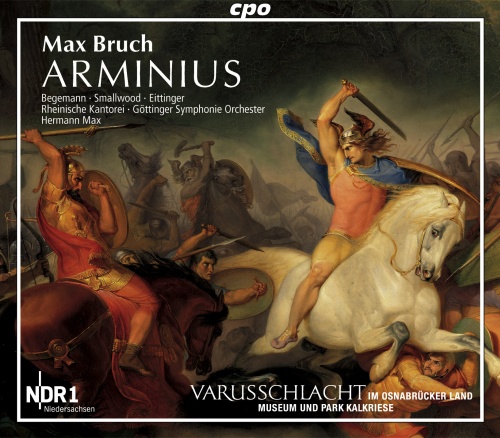
classical music distribution

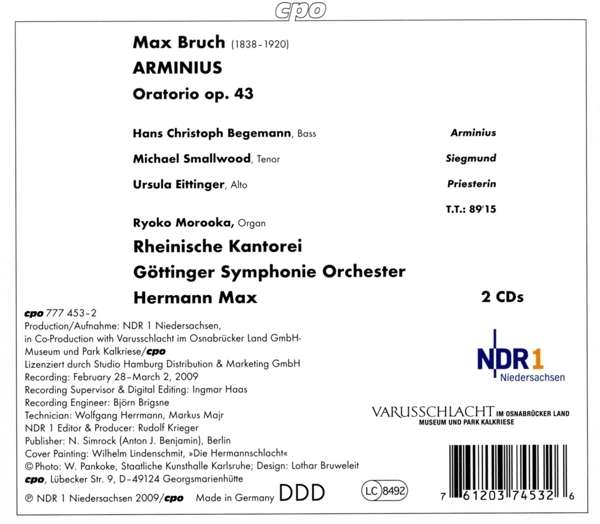
(Produkt nie został jeszcze oceniony)
kompozytor
Bruch, Max
tytuł
Bruch: Arminius, Oratorio op. 43
wykonawcy
Rheinische Kantorei;
Max, Hermann;
Goettinger Symphonie Orchester
Max, Hermann;
Goettinger Symphonie Orchester
nr katalogowy
CPO 777 453-2
opis
In February 1875 Max Bruch chanced upon an epic poem by the young Westphalian teacher J. Cüppers and wrote enthusiastically of it to his publisher Simrock: »The verses are magnificent, of dithyrambic swing; the melodies automatically spring forth everywhere from this beautiful rhythm.« At the very same time that the Arminius Monument was dedicated in the Teutoburg Forest near Detmold, Max Bruch was sitting with friends in the Bergisches Land and composing his Arminius. This work based on the historic defeat of the Romans under Varus two thousand years ago has a remarkably logical dramaturgy. The development of the contrast between oppression and liberation producing the formal suspense results in a constant process of intensification throughout the oratorio's four parts. The last part, »The Battle, « forms the magnificent climax of the work without ever slipping into an embarrassing national pathos. Although the text of Bruch's Arminius can be understood only in the context of the foundation of the German Empire in 1871, its music continues to move us even today: a genuine masterpiece by this still undervalued Brahms contemporary!
nośnik
CD
x 2
gatunek
Muzyka klasyczna
producent
CPO
data wydania
25-08-2009
EAN / kod kreskowy
761203745326

(Produkt nie został jeszcze oceniony)
cena 89,00 zł
lubProdukt na zamówienie
Wysyłka ustalana indywidualnie.
Darmowa wysyłka dla zamówień powyżej 300 zł!
Darmowy kurier dla zamówień powyżej 500 zł!
sprawdź koszty wysyłkiProduktu jeszcze nie zrecenzowano, chcesz być pierwszy?
Klienci, którzy kupili ten produkt, kupili również
różni kompozytorzy, Clérambault, Louis-Nicolas, Courbois, Philippe
Amour, viens animer ma voix ! - Clerambault, Campra, Courbois, Dornel
RAM 1107
Beethoven, Ludwig van, Haydn, Joseph, Mozart, Wolfgang Amadeus
Haydn: String Quartet Masterworks of the First Viennese School
PRD 250287
Pozostałe płyty tego kompozytora
różni kompozytorzy
Pieter Wispelwey - The Complete Channel Classics Recordings
CCS BOX 7624
Tchaikovsky, Piotr, Saint-Saëns, Camille, Bruch, Max
Cello Works: Tchaikovsky / Saint-Saens / Bruch
CCS 16598
Brahms, Johannes, Bruch, Max, Glazunov, Alexander
Brahms: Double Concerto / Bruch: Scottish Fantasy / Glazunov: Violin Concerto in A minor
8.110940
różni kompozytorzy
Hallé Tradition – Dvorak, Elgar,, Bruch, Mendelssohn, Schubert, Brahms,Harty, Hamilton, Sargent, Malcolm
HLT 8004
różni kompozytorzy
Serenade for Dieter Klöcker Vol. 2 – Albrechtsberger, Bruch, Meyerbeer, Myslivecek, Röntgen, Schubert …
MDG 301 1967-2
Pozostałe płyty tego wykonawcy
Telemann, Georg Philipp, Bach, Carl Philipp Emanuel
Telemann & Bach, C.P.E.: Veni sancte spiritus - Festive Cantatas
CPO 777 946-2
Napisz recenzję dla: Bruch: Arminius, Oratorio op. 43
Zapytaj o dostępność produktu
Twoje zapytanie:
Odpowiemy na adres:
Produkt został dodany do koszyka

Bruch, Max
Bruch: Arminius, Oratorio op. 43
1 szt




